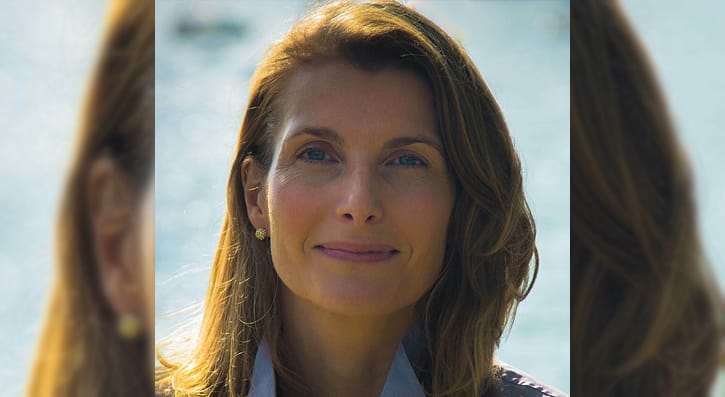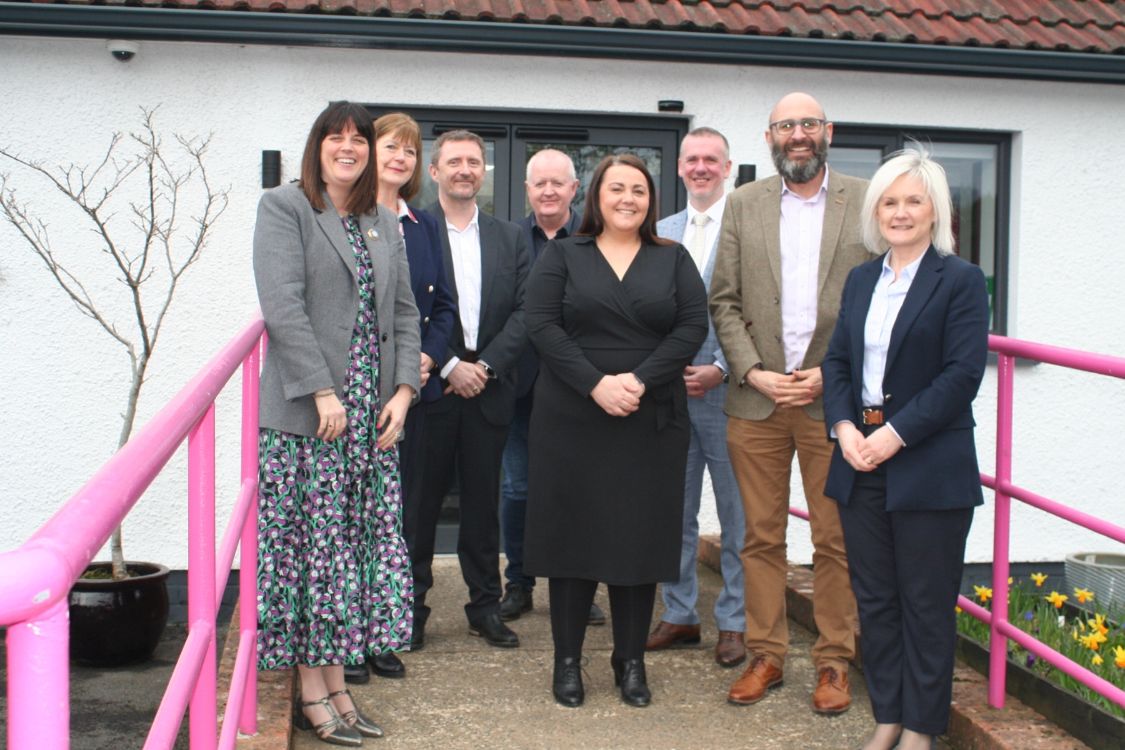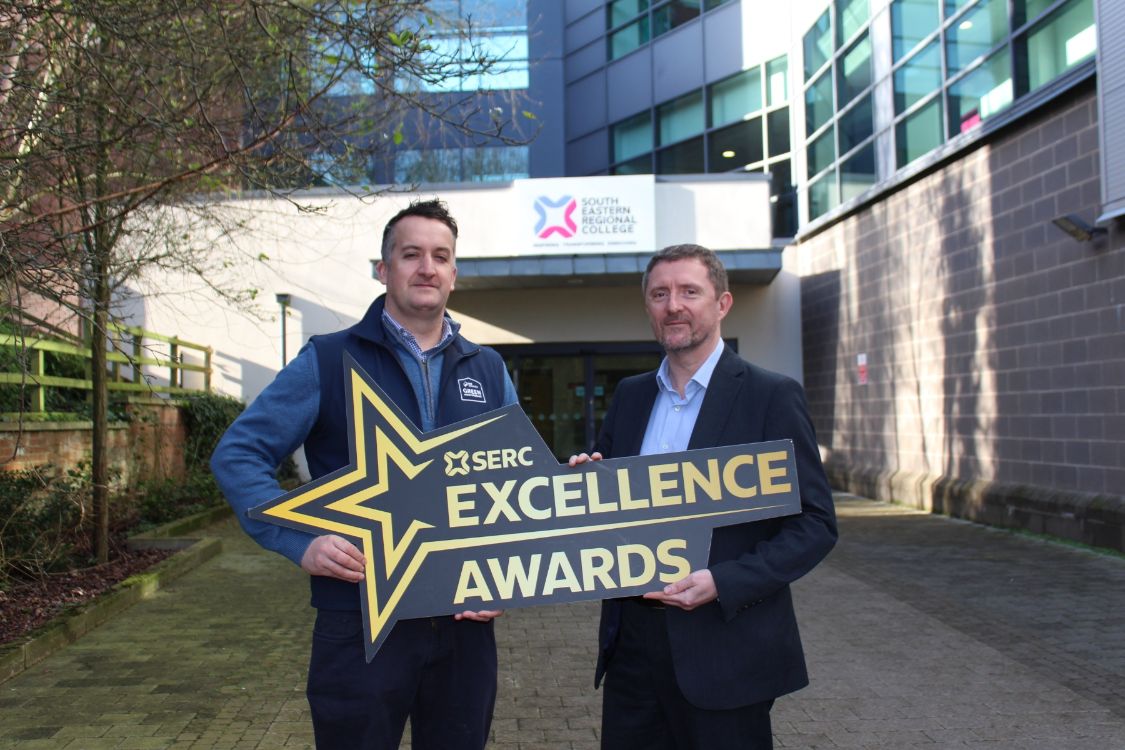The Learning Revolution – Interview with Speaker Julie Wilson
0 min read
24 November 2020

Ahead of SERC’s Learning Revolution Conference 9 & 14 December, we interviewed the exciting key speakers about their work and to hear about why they are passionate for change in education. This week we hear from Julie Wilson.
Julie Margretta Wilson is a coach and advisor to school leaders, educational institutions, and foundations whose mission is to shape the future of education. She has over twenty years’ experience building effective learning environments that unlock human potential and enable organizational culture to adapt and grow during times of change.
She is the founder and executive director of Institute for the Future of Learning, a nonprofit organization dedicated to helping transform the 'one size does not fit all' model of education. The Institute works with a diverse range of clients including public schools, independent schools, public charter schools, and educational philanthropic organizations.
Julie graduated from Harvard’s Graduate School of Education with a Master’s degree in technology, innovation, and education, and a BA in business administration and French from Queen’s University of Belfast, Northern Ireland.
Her book, 'The Human Side of Changing Education' was published by Corwin Press.
What has led you to this transformative work within education?
I have been working for about 20 years in adult development, leadership development and large-scale change. After a decade or so of that work, I noticed a theme that so much of what I help adults to do is to unlearn what they have learned through a standardised system of education. That brought me back to looking at primary and secondary school when I discovered that not a whole lot has changed, particularly in high school, since I left - many years prior. It prompted me to start a new organisation, The Institute for the Future of Learning - our mission is to transform the ‘one size fits all’ education model.
How do you think the current crisis has shaped thinking about how education needs to change? What are the drivers for this change beyond the pandemic?
I think we have a couple of things happening here, one is the examination debacle that we are seeing in the UK, and elsewhere, where the whole topic of assessment is being questioned. We have a reality where we value what we assess but we don’t assess what we value. If you were to ask the majority of parents what’s worth learning, they would say character education, critical thinking, self-direction, being a good, kind person; and when you look at skills listed by organisation such as the world economic forum, you see a similar list of skills and knowledge and habits of mind over and over - skills such as creativity, critical thinking, problem solving, communication, collaboration - but typically we don’t assess these kinds of skills and knowledge in schools. I think there are one of two ways this could go, one is we keep talking about exams in a way that is very limited and focused on the logistics of maintaining the current model, or we start a very different conversation about assessment and what might be possible including what we know though neuroscience and what we all know about how children learn. There is greater potential here for meaningful change – we have the opportunity to start a very different conversation and commit to a very different depth and level of change.
Drivers beyond the pandemic?
The fact that the majority of jobs that will be available in 5 or 10 years don’t exist yet, means that education has the task of educating children for what is an unknowable future. This is a major driver and a lot of that is uncertain and unknown. Another driver, if we choose to see it, is there is much that we are learning now through neuroscience and how people learn, that could be applied to teacher preparation and to school leadership. There is a great body of knowledge that we should be leaning on a whole lot more than we are. Another driver is the growing mental health crisis. We have kids, and it doesn’t matter what demographic are they come from - high poverty areas, upper middle class –the stresses and the overwhelm that these kids are facing is extraordinary, just with the pace of change that we have, the pressure of social media, the pressure of education. I sometimes joke that I don’t think that I could get into university these days - given the very thin resume that I had at age 17 –it is kind of nuts as we are asking our 17 year olds to have these very professional resumes and they are still children.
The pace of change presents education with a real challenge. No country wants to be turning out students with skills and qualifications for jobs that may no longer exist so how do we go about changing a system that is grounded in language , logic and recall to help students build skills, habits and knowledge of mind that will help them thrive in an unknowable future?
How do we do it? When I was writing the book - The Human Side of Changing Education - I had a dark night soul searching for the answer to the question I was asking myself, what is the bullet proof way do we go about this? What are the 5 steps, or the 10 core principles? How do we do this? I was banging my head against the wall on this. I remember having lunch with my friend Melissa realising during the conversation there are people far more intelligent than me with way more qualifications who have not come up with that answer, because if we did have the answer, the system would have changed. So, step number one, we need to give ourselves a break. There is good news and bad news - the bad news is that it does not exist out there, there is no fool proof method. The good news is that it resides within every one of us. That means, if someone reading this, has an idea, a change they would like to see, however big or small, if they were to take action, starting with the first small baby step to make that happen, and if we all did that, I think we would have a tidal wave of change. Every single person has the capacity to act. If every single person acted on that agency, then I think we would have a powerful force for change.
High Tech High espouse a philosophy of learning around productive activity. What examples from around the world model innovation and creativity?
High Tech High is a great example, and the New Tech Network is another one. They have a number of schools here in the US and their work is all grounded in really high-quality project based interdisciplinary learning. I remember being led on a tour of one of their schools in Columbus Indiana, by two students who were describing one of their projects where a local family had a house fire and what the class had decided to do - as a project - was to rewire their house. You can imagine the knowledge and skills the kids learned via that project, maths, physics, engineering, empathy and they do this in teams, so they are learning how to work in a team. The two girls that took me on the tour were describing how they start a project, how they scope the project, talk about milestones - all the rigors of project management. Then they got into how they establish a feedback structure with each other and what they do if someone doesn’t pull their weight, how they intervene and how they have those conversations. I looked at them, they were 14, and I said, “I teach adults management development, leadership development, a whole bunch of different topics , I teach 30, 40, 50 and 60 year olds what you already know how to do, which is to lead and be part of a team,” and one of them said, “That’s great, because I think I would like to teach that when I am older, “ and I said, “You don’t have to wait until you are older, I am pretty sure you could do it right now!” So that really struck me. I would love what I teach to be redundant, so you have 18-year-olds saying, yes, I’ve got that, could you tell me what’s next? So there is the potential for young adults to leapfrog you and me, and the only way they are going to do that, is if we fundamentally change the system.
For other examples, I go back to Maria Montessori and Rudolf Steiner, and the Waldorf Schools and Frierich Froebel. Steiner launched the first Waldorf school in 1919 in Stuttgart, Germany, for the children of factory workers. In his opening lecture, Steiner talked about strength of character, depth of feeling and power of thought. That is basically emotional intelligence, grit, and critical thinking in our current language 100 years later. So we already know what this looks like in practice, and we know how to do it, the big question is can we get a system to change to provide it for every child? Part of the tragedy of Montessori and Steiner, for example, is that Steiner started educating the children of factory workers and Montessori started in the slums of Rome, but those more progressive models of education morphed into the middle and upper middle classes. There is a real equity problem here and opportunity. I think this is another part of what we are seeing during COVID – it hasn’t changed anything fundamentally, but it has brought issues to the surface which were already there, but we could just choose to ignore. COVID is putting it front and centre and saying, would you still like to ignore this? The exam debacle, for example, brings up the unfair ways in which the examination system is structured. Wales has taken the step to say that examinations will not be taken next year so I am thinking it would be difficult, if you were preparing for academic year 2022/23 to say let’s go back to how we did it in 2019. That’s a difficult argument to make so there is a lot of potential for change.
The Learning Revolution online conference is on 9 & 14 December 2020. Click here to book your place.
Page Tags
SERCLatest News
Keep up with the latest from SERC



